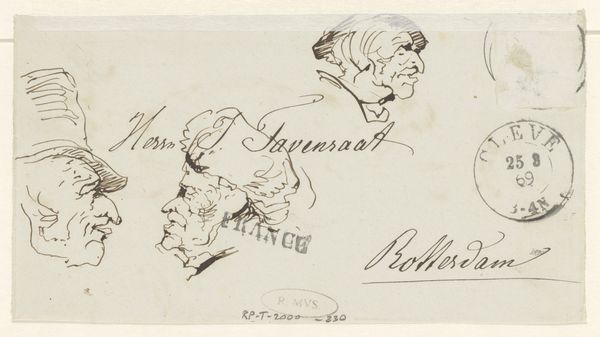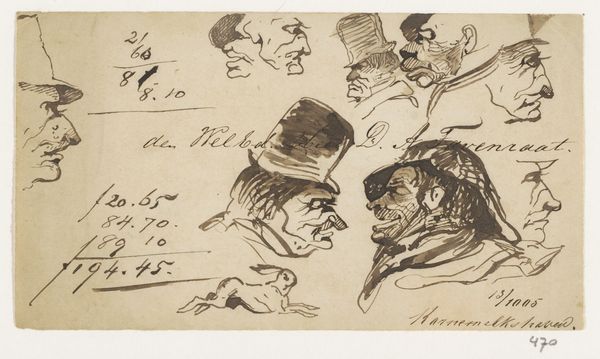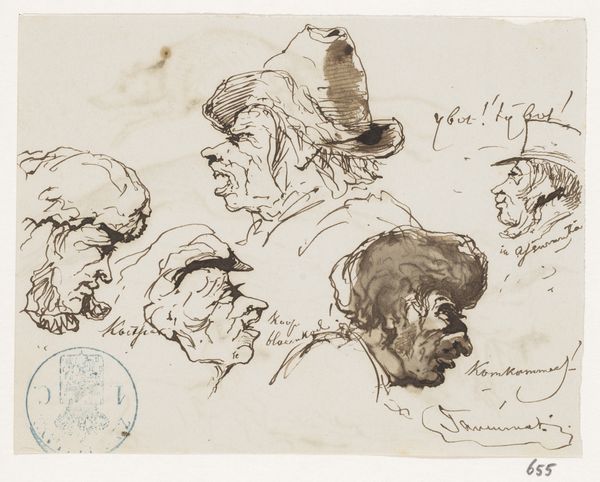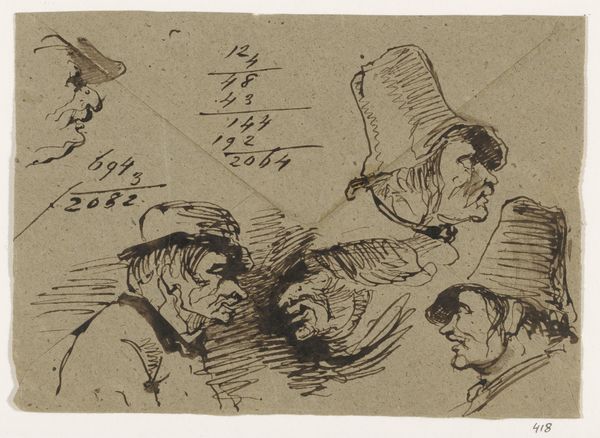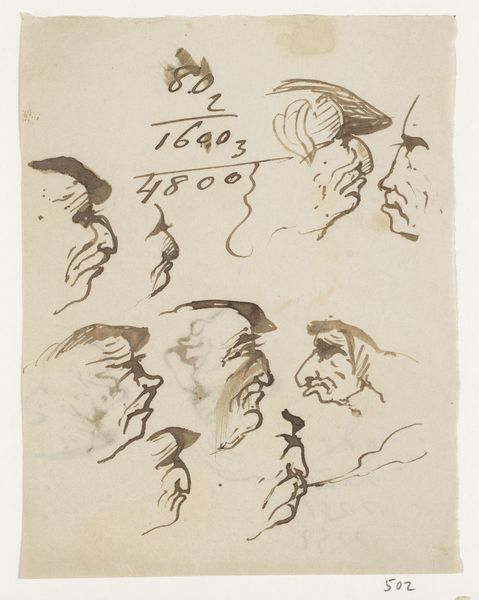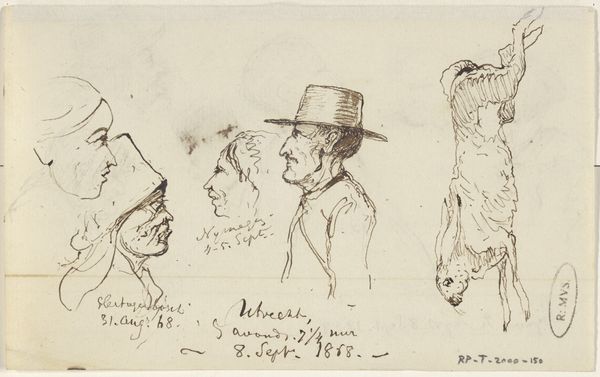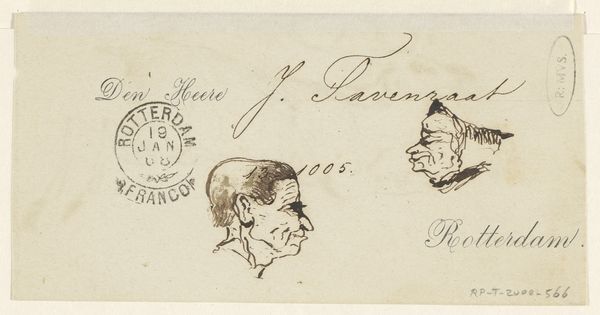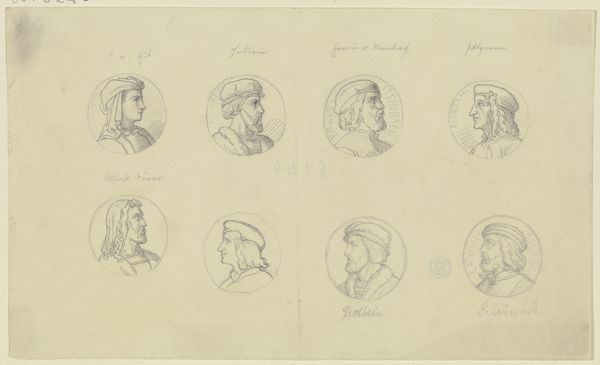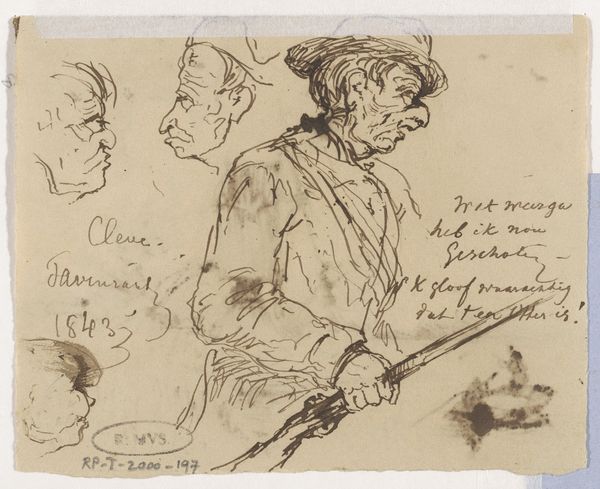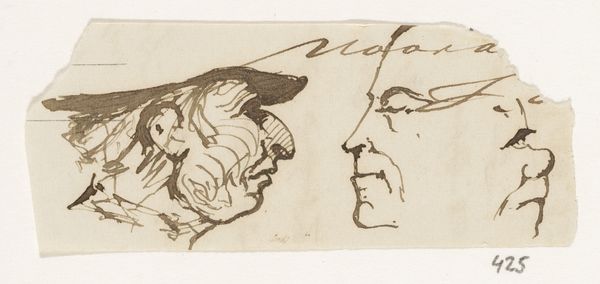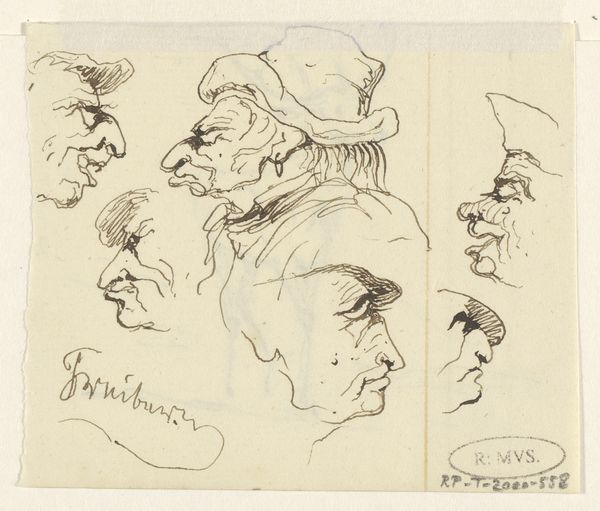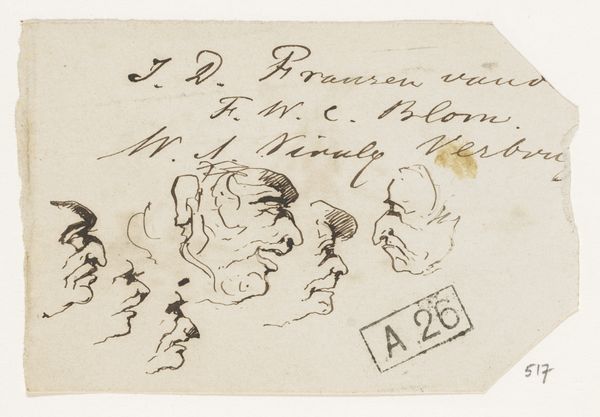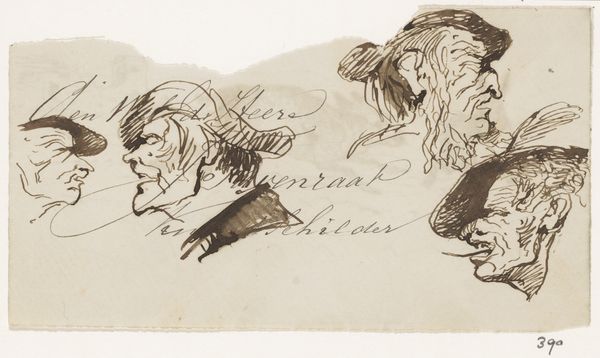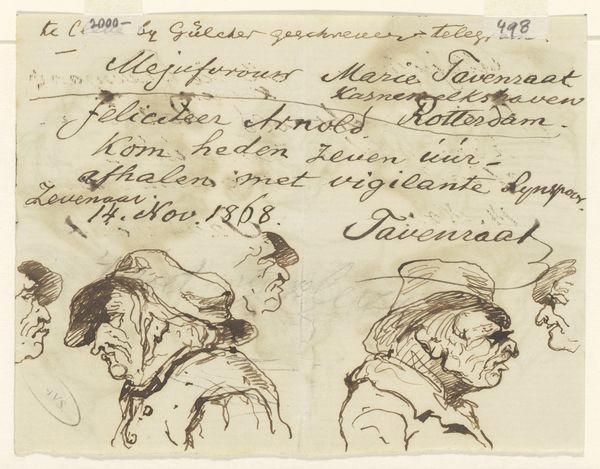
drawing, ink, pen
#
portrait
#
drawing
#
comic strip sketch
#
quirky sketch
#
pen sketch
#
personal sketchbook
#
ink
#
idea generation sketch
#
sketchwork
#
ink drawing experimentation
#
sketchbook drawing
#
pen
#
storyboard and sketchbook work
#
sketchbook art
Dimensions: height 81 mm, width 100 mm
Copyright: Rijks Museum: Open Domain
Editor: This is "Koppen," a pen and ink drawing from somewhere between 1840 and 1880, by Johannes Tavenraat. It's at the Rijksmuseum. It's... odd. They all seem like grumpy caricatures. What do you see in this piece? Curator: It's fascinating how Tavenraat captures character with just a few strokes. Note the repeated visual element of the hat. In many cultures, hats were far more than practical items. They represented social status, occupation, even moral standing. These sketches might be read as social commentary. What feelings are evoked as you examine their different styles of headwear? Editor: I hadn't really thought of that! Some seem very proper, like the tall chef's hat. Others are more…common. Curator: Precisely! And consider the date scrawled on the drawing: "November 1790." This date precedes the work by a few decades, suggesting the artist sought to capture specific memories or earlier imagery within a newer context. Could this then be a deliberate act of preserving a particular vision of Dutch society as it once was, or perhaps a critique of its transformation? How does this possibility impact your view? Editor: Wow. So it's like the artist is saying, "Remember these types?" It makes them feel less like random sketches and more like historical figures. Curator: Indeed. And what of their expressions? They look disapproving or concerned, almost haunted, like the weight of the past is visible. That could invite deeper interpretations. Art can be about the seen and unseen—it allows an image to exist in our minds and influence our decisions long after its creation. Editor: This has totally changed how I see the drawing. It's not just faces; it's history. Curator: Precisely. This artwork can continue teaching viewers about cultural norms and histories, centuries later.
Comments
No comments
Be the first to comment and join the conversation on the ultimate creative platform.
